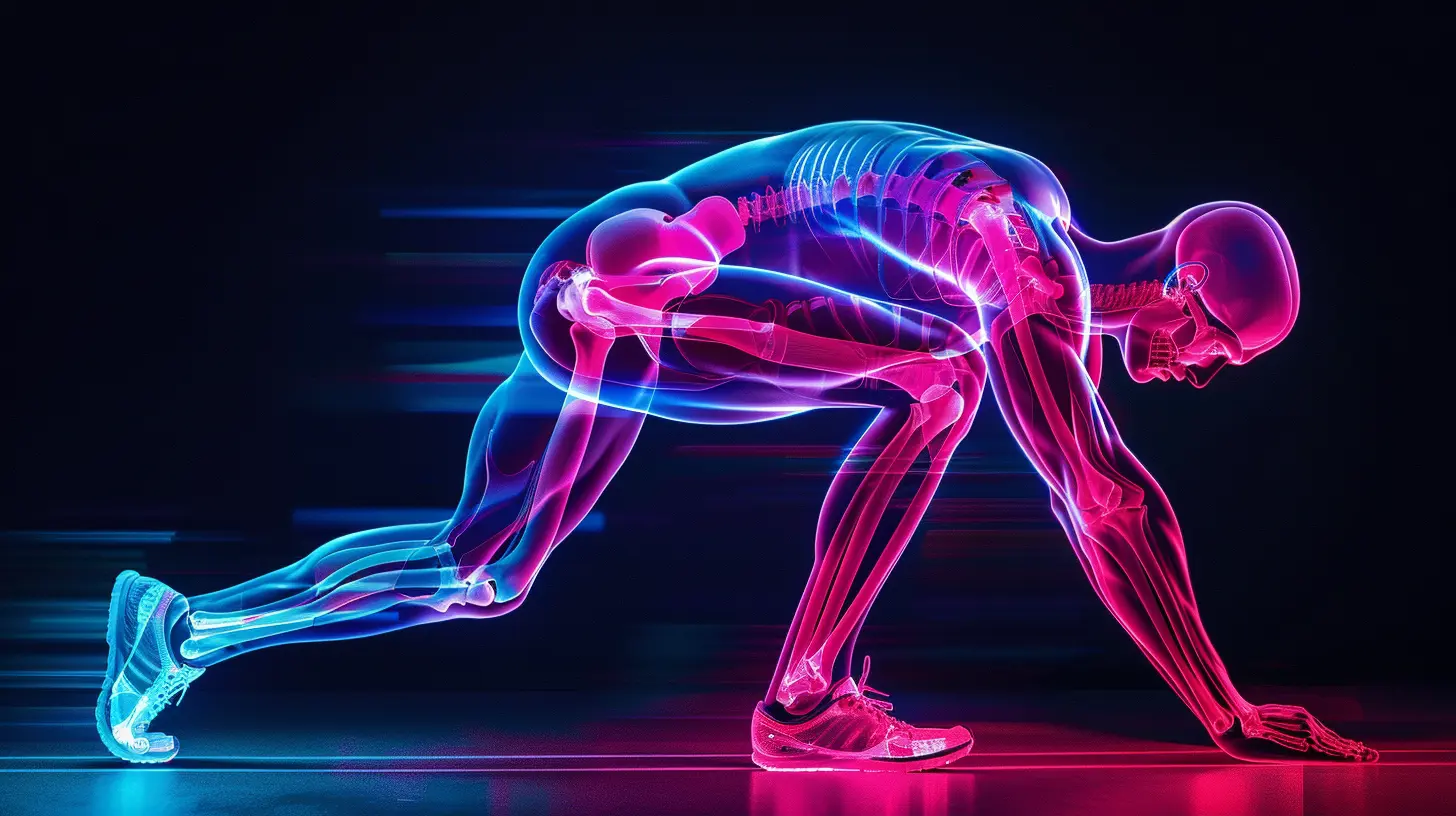Optimizing Recovery: Strategies for Faster Muscle Repair
29 October 2025
Alright, let’s talk about something every athlete, fitness junkie, and gym-goer obsesses over—recovery. Yeah, we all love the pump and the burn, but the real magic? That happens after your workout. Whether you’re trying to build muscle, break a PR, or just stay consistent, how well you recover can make or break your progress.
What if I told you that recovery isn’t just about resting? It’s actually a smart mix of science, timing, and habits most people overlook. Intrigued? Let's refuel your knowledge bank and uncover real-deal strategies that get those muscles back in business faster than you think.
Why Muscle Recovery Matters More Than You Think
Ever felt sore for days after a killer leg day? That’s your body screaming, “Give me a break!” Muscle recovery is the process where your body repairs the tiny tears in muscle fibers caused by exercise, especially resistance training.But here’s the kicker: this repair process is what actually builds stronger muscles. So if you're skimping on recovery, you’re leaving gains on the table.
Think of your muscles like a mobile phone. You can’t expect it to perform well if it’s running on 5% battery. Recovery is your charger—and you need a fast one.
The Science Behind Muscle Repair
Let’s keep it real simple. When you work out, especially with weights or high-intensity exercises, your muscle fibers experience micro-damage (nothing to panic about, it's normal). In response, your body triggers an inflammatory process:1. Inflammation begins (a good kind, don’t worry).
2. White blood cells rush in to remove waste and signal repair.
3. Protein synthesis kicks off, building new, stronger muscle fibers.
All of this takes energy, nutrients, and time. But here’s the catch—how long it takes depends on what you do post-workout.
Key Factors That Influence Recovery Speed
Before diving into strategies, let’s check out some things that mess with or boost your recovery:- Sleep quality
- Nutrition
- Hydration
- Training intensity and volume
- Stress levels
- Age and gender
- Genetics (yep, it plays a role too)
Now let’s get into the juicy part—how to shortcut the misery and fast-track your recovery like a pro.
1. Sleep: The Unsung Hero of Recovery
You’ve probably heard this a thousand times, but it bears repeating: if you’re not sleeping enough, you’re not recovering properly.💤 During deep sleep, your body releases growth hormone, the key player in muscle repair. Miss out on sleep, and you’re basically slamming the brakes on your recovery engine.
Pro Tips:
- Aim for 7-9 hours of quality sleep.- Stick to a consistent sleep schedule (even on weekends!).
- Ditch screens 30 minutes before bed.
- Keep your room cool, dark, and quiet—your muscles will thank you.
2. Post-Workout Nutrition: Fuel the Rebuild
Ever heard the phrase, “earn your carbs”? Well, after a workout, you’ve earned ‘em. Your muscles are craving nutrients like a sponge.Here’s what your body needs post-workout:
- Protein to repair and rebuild- Carbs to replenish glycogen stores (your body’s energy stash)
- Healthy fats, in moderation, to support hormone function
Think of protein as bricks and carbs as the workers bringing them to the site. No one’s building muscle without both.
Quick Recovery Snack Ideas:
- Whey protein shake + banana- Grilled chicken with sweet potatoes
- Greek yogurt with berries and honey
Stick to a 30-60 minute window after your workout for maximum impact.
3. Hydration: The Recovery MVP You Ignore
Look, water might not be sexy, but let me tell you—it’s absolutely essential. Dehydration slows down every cellular process in your body, including muscle repair.Muscles are made up of around 75% water, so if you’re dry, they’re dry...and recovery crawls.
Hydration Hacks:
- Drink at least half your body weight in ounces of water daily.- Add electrolytes if you’re sweating buckets.
- Check your urine color (gross, but helpful—it should be pale yellow).
4. Active Recovery: Move to Heal
This one feels counterintuitive, right? “I’m sore, why would I move more?” But low-intensity activities actually help by boosting blood flow and flushing out metabolic waste.Best Active Recovery Options:
- Walking- Light cycling
- Swimming
- Yoga or mobility work
The goal is to move—but gently. Think of it as oiling a squeaky hinge, not grabbing a sledgehammer.
5. Massage and Foam Rolling: DIY Muscle Love
Massage isn't just for luxury spas—it literally improves circulation, reduces soreness, and breaks up muscle tightness. Don’t have the budget for regular massages?Say hello to foam rolling. It’s like a poor man’s massage but can be just as effective if done right.
Tips for Foam Rolling:
- Focus on tender/sore spots for 30–60 seconds.- Breathe deeply to help muscles relax.
- Avoid rolling directly on joints or bones.
6. Contrast Therapy: Hot and Cold Magic
Ever seen athletes in ice baths or saunas and wondered, “Does that actually work?” Short answer—yep.Benefits of Contrast Therapy:
- Reduces muscle soreness- Improves circulation
- Flushes out toxins
- Speeds up inflammation resolution
🔥 Try alternating between hot and cold showers post-workout:
- 1 minute cold, 2 minutes hot (repeat 3–5 times)
It’s like a wake-up call for your muscles.
7. Stretching and Mobility: Stay Loose, Not Lazy
Stretching isn’t just a warm-up thing. Post-workout stretching helps your muscles return to their normal length, reducing tightness and enhancing flexibility.Go-To Stretches Post-Workout:
- Hamstring stretch- Quad stretch
- Hip flexor opener
- Chest and shoulder stretches
Don’t rush it. Spend at least 10–15 minutes cooling down and breathing through your stretches. Your future self will be high-fiving you.
8. Supplement Smartly (But Not Excessively)
Supplements can definitely support recovery—but they should never replace real food.Top Supplements for Muscle Recovery:
- Whey Protein: Fast-digesting and easy to absorb.- Creatine Monohydrate: Reduces muscle cell damage and improves strength gains.
- BCAAs: Help reduce muscle soreness and fatigue.
- Omega-3s: Fight inflammation like a champ.
- Magnesium: Supports muscle relaxation and sleep.
Remember, supplements are like sidekicks—helpful, but you’re the superhero.
9. Reduce Stress: Mind and Muscles Are Connected
Stress isn’t just in your head—it affects your whole body. High levels of cortisol (your stress hormone) can slow down muscle recovery and even lead to muscle breakdown. Ouch.Chill-Out Methods That Actually Work:
- Meditation or deep breathing for 5–10 minutes- Journaling (brain dump to de-stress)
- Listening to music
- Spending time in nature
Keep your mental game strong—it feeds your physical recovery too.
10. Listen to Your Body, Not Just Your Workout Plan
Train hard, but don’t train stupid. If your body's sending SOS signals—persistent soreness, fatigue, irritability—it’s begging you to slow down. Rest days are not for the weak; they’re for the wise.Rest Day Ideas:
- Active recovery (light movement)- Focus on nutrition and hydration
- Do non-fitness activities you enjoy
Trust us, you’ll come back stronger.
Final Thoughts: Recovery Is a Non-Negotiable
Look, we all love the grind. But pushing harder without recovering smarter is just spinning your wheels. Recovery isn’t fancy—it’s foundational. Whether you're prepping for a marathon, hitting personal bests in the gym, or staying injury-free, strategic recovery turns good workouts into great results.So next time you’re tempted to skip your cooldown or pull an all-nighter, ask yourself: “Am I helping my muscles, or hurting my progress?
all images in this post were generated using AI tools
Category:
AthleticsAuthor:

Onyx Frye
Discussion
rate this article
1 comments
Yasmeen Jimenez
Great insights on muscle recovery! These strategies are practical and easy to implement, making them perfect for athletes looking to enhance performance and reduce downtime. Keep it up!
November 9, 2025 at 12:15 PM

Onyx Frye
Thank you for your kind words! I'm glad you found the strategies helpful for enhancing performance and recovery.


